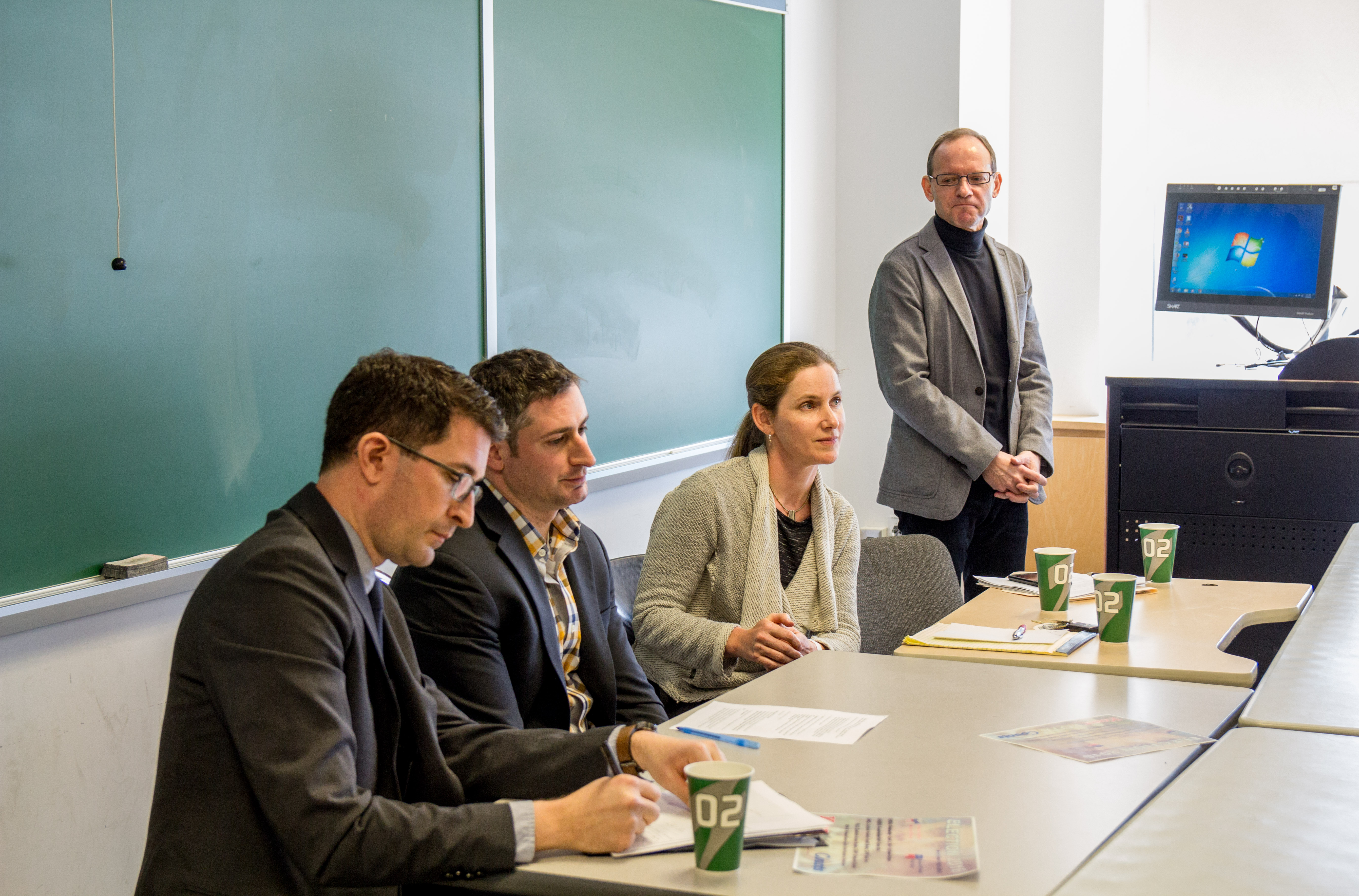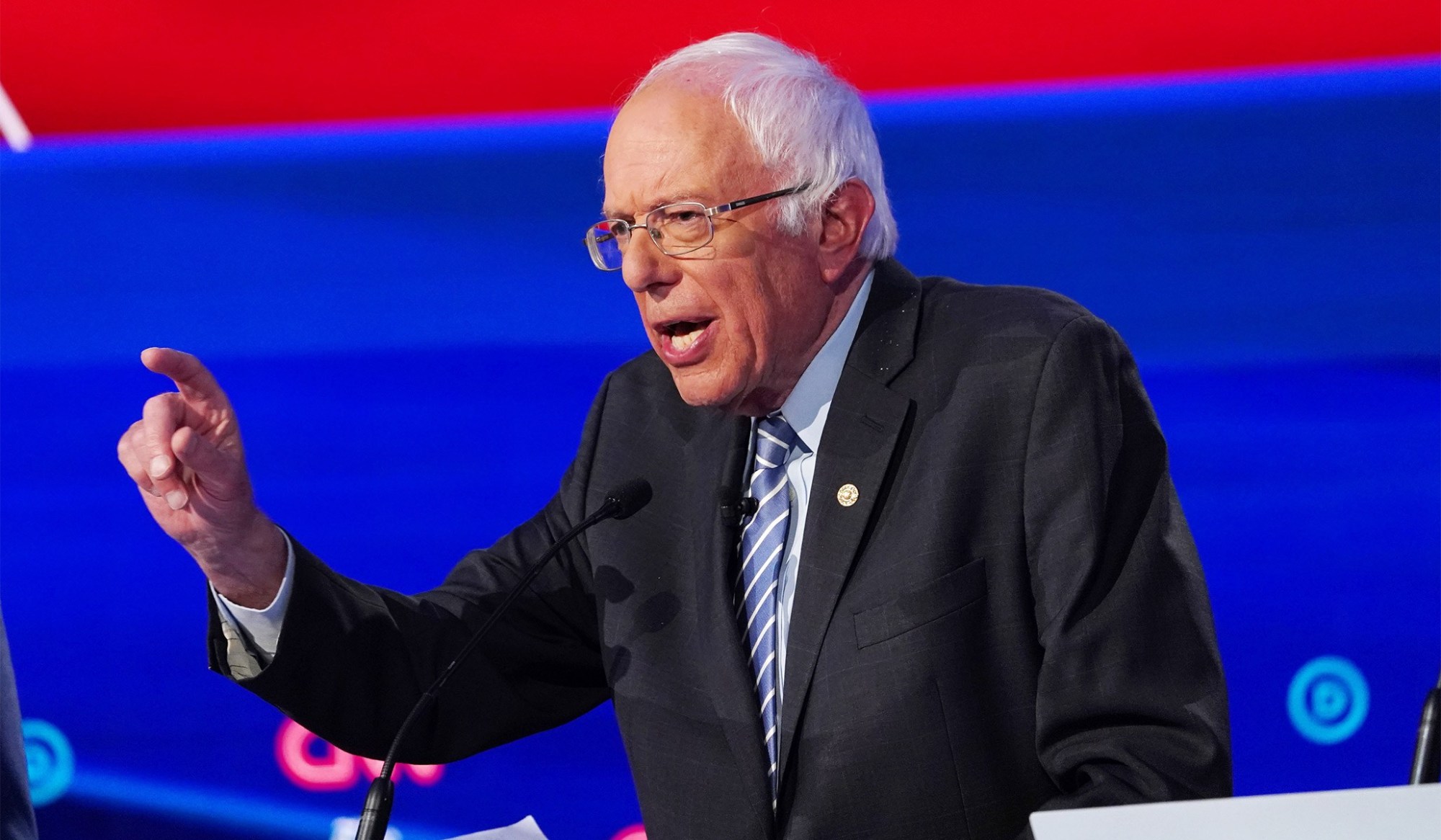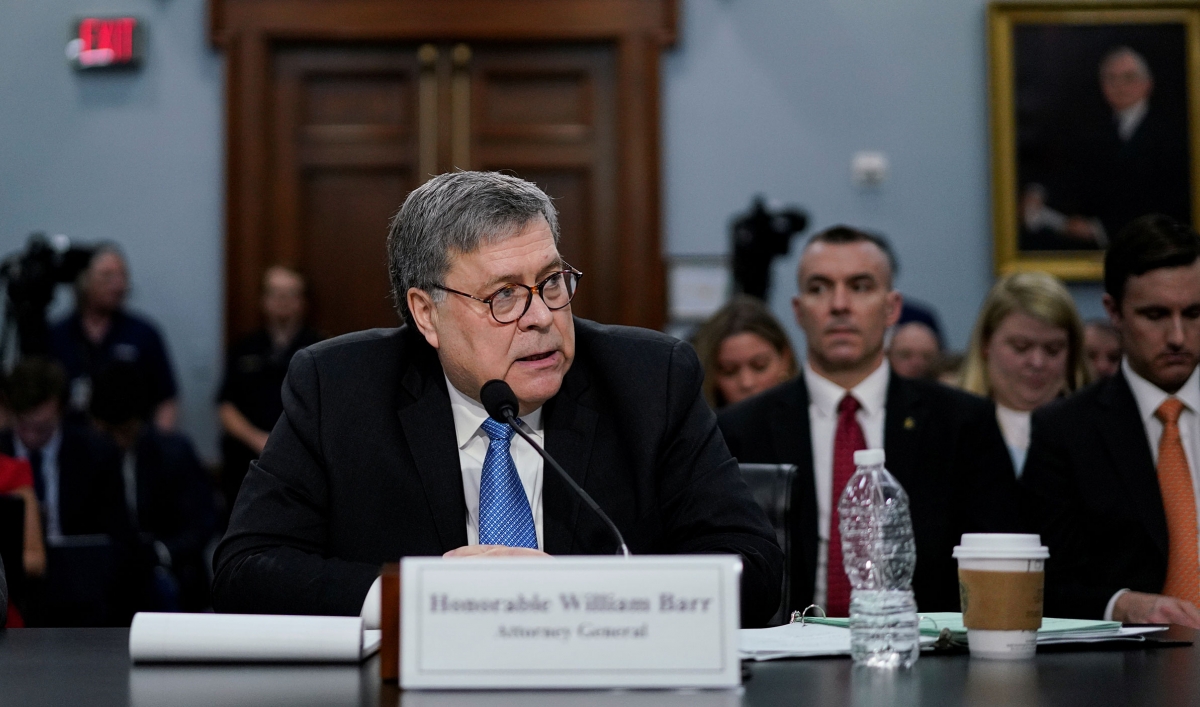Queens College professors and students filled Powdermaker Hall 204 on April 6 to discuss the 2016 presidential election.
Ron Hayduk and Keena Lipsitz, political science professors at QC, moderated the discussion led by Heath Brown, a professor of public policy at John Jay College and the Graduate Center, as well as Aaron Shapiro, a doctoral candidate of political science at the Graduate Center who worked in multiple election campaigns including Barack Obama’s 2008 presidential campaign.
Convinced that the eventual Democratic nominee will be Hillary Clinton, Shapiro explained how bringing Democrats together is a major area of concern for the frontrunner.
“The Democratic coalition that came out of Barack Obama’s 2008 and 2012 elections is one that depends heavily on mobilizing groups that are traditionally underrepresented,” Shapiro said. “Most crudely and bluntly, you can portion these out to non-white voters and youth voters.”
He argued that Obama mobilized both groups in high numbers. Clinton and Sanders, however, have split the coalition during the primary season. Describing young voters’ opinion of Clinton as “lukewarm,” Shapiro stressed the importance of mobilizing these voters during the general election should she win the Democratic nomination.
“If Bernie Sanders does not win the nomination, one incredibly important thing for Hillary Clinton, moving forward, will be the importance of the youth vote in the general election,” Shapiro said.
Shapiro also argued that the state of polarization and partisan antipathy would affect the election, which would help candidates that do not have an enthusiastic base behind them.
“We have become as a country significantly more partisan. But the partisanship is not necessarily something that’s the result of us having stronger identification with the brand of the party we end up voting for. In fact, it’s coming from a greater level of antipathy toward the party,” Shapiro said.
Brown said that Republicans have the upper hand in winning the presidency with Sen. Bernie Sanders, I-Vt., former President Bill Clinton and Speaker of the House Paul Ryan as major reasons why. Brown argued that Sanders, if the Democratic nominee, would struggle finding votes in the general election in the South and states like Virginia.
“The voters in Virginia, Republicans and Democrats, view policy very differently, and it is very difficult for somebody with Bernie Sanders-politics to win in a national race,” Brown said.
Brown also said that Hillary Clinton, if the nominee, would struggle because of her husband.
“[Bill Clinton] is going to have a very difficult time staying out of the way of the candidate,” Brown said. “In the past, he has been a very good surrogate [and] my argument is that he’s going to be not nearly as valuable a surrogate for Hillary Clinton as he was in the past.”
When discussing the GOP, Brown said that a contested convention might result with none of the three candidates getting the nomination.
“As a result, a fourth person is going to emerge. Somebody who can unify the party; bring all of the various wings of the Republican Party together, and I contend that it is going to be Paul Ryan,” Brown said.
He said that a Ryan nomination by the Republican Party would succeed for two reasons—Trump not running as an independent candidate and endorsing Ryan as the nominee.
“If that doesn’t happen, I think Paul Ryan or whoever comes out of the convention would have zero chance of winning,” Brown said.














